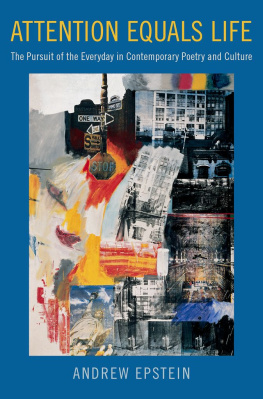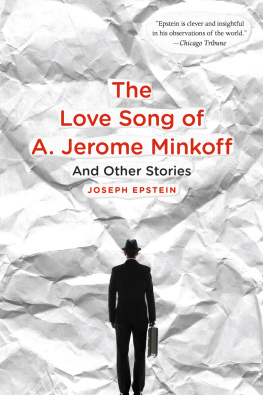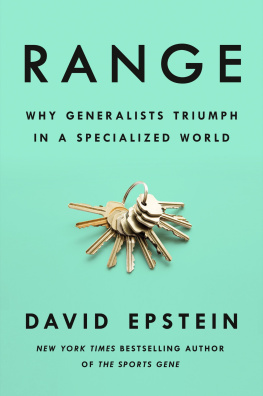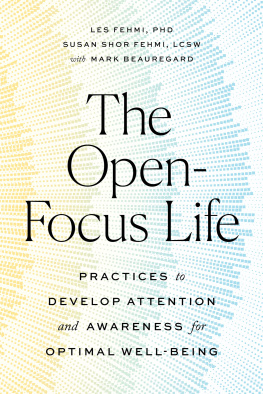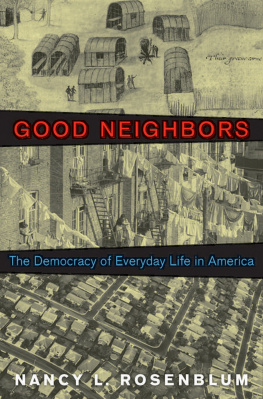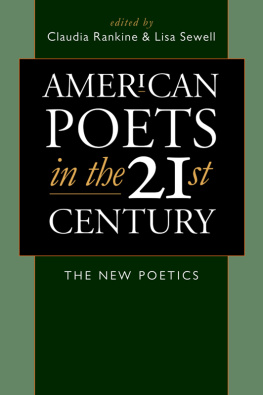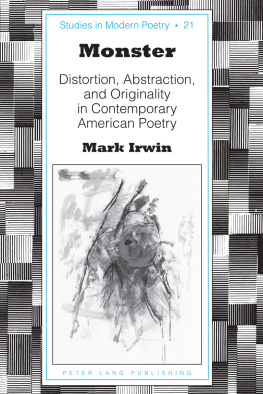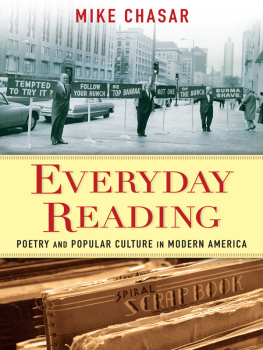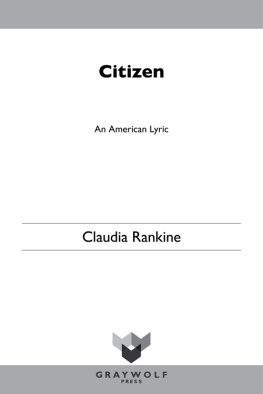Attention Equals Life

Oxford University Press is a department of the University of Oxford. It furthers the Universitys objective of excellence in research, scholarship, and education by publishing worldwide. Oxford is a registered trade mark of Oxford University Press in the UK and certain other countries.
Published in the United States of America by Oxford University Press
198 Madison Avenue, New York, NY 10016, United States of America.
Oxford University Press 2016
All rights reserved. No part of this publication may be reproduced, stored in a retrieval system, or transmitted, in any form or by any means, without the prior permission in writing of Oxford University Press, or as expressly permitted by law, by license, or under terms agreed with the appropriate reproduction rights organization. Inquiries concerning reproduction outside the scope of the above should be sent to the Rights Department, Oxford University Press, at the address above.
You must not circulate this work in any other form and you must impose this same condition on any acquirer.
Cataloging-in-Publication data is on file at the Library of Congress
ISBN 9780199972128
eISBN 9780190631727
For Casey and Dylan
{ CONTENTS }
Writing this book has been a long journey, but one of the many pleasures of completing it is at last having the opportunity to thank the many colleagues, friends, and family members who have done so much to assist in its coming into the world. I count myself very lucky to have had many remarkable teachers and mentorsespecially my mother, Ellen Epstein, who taught high school English for decades and first kindled my fascination with books and poetry, along with Edward Solecki at Far Brook School, Howard Glatt at Columbia High School, Kimberly Benston at Haverford College, and Jonathan Levin at Columbia Universityall of whom led me to a life in literature and provided much inspiration and guidance along the way.
Many friends and colleagues from far and wide have discussed this project with me, helped me refine my ideas, or generally offered encouragement and practical advice, including Ben Lee, Lisi Schoenbach, Jonathan Eburne, Brian Glavey, Daniel Kane, Mark Silverberg, Libbie Rifkin, Susan Rosenbaum, Michael Sheringham, Rachel Galvin, Liesl Olson, Siobhan Phillips, Don Share, Alan Golding, Brian McHale, Aldon Nielsen, David Kaufmann, Charles Bernstein, Robert Archambeau, Eric Bulson, Paul Stephens, Raphael Allison, Caleb Crain, Kevin Killian, Rachel Blau DuPlessis, Christopher Schmidt, Evan Kindley, Stephen Burt, Kaplan Harris, Michael Thurston, Gillian White, Lloyd Pratt, Steve Evans, Jennifer Moxley, Robert Zamsky, and Lytle Shaw. I continue to be deeply grateful to Marjorie Perloff for her abundant generosity and her unflagging belief in my work over the course of many years.
Thanks as well to Rachel Malkin for inviting me to present a portion of this book as part of the American Literature Research Seminar at Oxford Universitys Rothermere American Institute, and to Ji Flajar, who invited me to give a talk drawn from this study at Palack University in the Czech Republic. I am especially grateful to Stephen Fredman for his very helpful comments on portions of the manuscript, and to the other three, anonymous readers for Oxford University Press, whose sharp and insightful feedback did a great deal to enhance this book. Portions of this study have been published previously as articles or book chapters, and I wish to thank the editors and peer reviewers for Contemporary Literature, Jacket, Jacket2, The Wallace Stevens Journal, and New Perspectives on American Poetry, edited by Ji Flajar.
I also count myself incredibly fortunate to have been a longtime member of the vibrant and supportive community of scholars, writers, and students that is the English Department at Florida State University. I am indebted in particular to the two chairs who have gracefully led our department during the time I worked on this project for their unstinting encouragement and guidance and for helping me with the resources and time needed to finish it: R. M. Berry (from whom Ive also learned so much about Heidegger, Wittgenstein, Stanley Cavell, the avant-garde, and so much else) and Eric Walker (who I must also thank for his insights into A. R. Ammons and for giving me access to his wonderful collection of Ammonsiana). Special thanks to Leigh Edwards, for being an ever-supportive colleague, friend, and sounding board. For their support, friendship, and intellectual camaraderie, I wish to thank my FSU colleagues, including David Kirby, Barbara Hamby, Ned Stuckey-French, Elizabeth Stuckey-French, Stan Gontarski, Barry Faulk, Robin Goodman, Meegan Kennedy, Robert Stilling, Dennis Moore, Anne Coldiron, David Johnson, Candace Ward, Erin Belieu, Jimmy Kimbrell, Robert Olen Butler, Kathleen Yancey, Diane Roberts, Helen Burke, Jim ORourke, and many others, along with several former colleagues, including Paul Fyfe, Cristobal Silva, Daniel Vitkus, and Tim Parrish. I am especially grateful to Paul Outka (now at the University of Kansas), for helping me think through many of the ideas in this book and for being a model of intellectual engagement, generosity, and friendship.
I have benefitted enormously from the many students who have hashed out ideas about the role of the everyday in literature and culture with me over the years, especially those who were part of the graduate seminars and undergraduate honors seminars I have taught on this topic. There are too many wonderful students to name here, but I would be remiss if I were not to mention Peter Kunze, Caitlin Newcomer, Christopher Higgs, Scott Ortolano, Amber Pearson, Stacey Suver, Adam McKee, Andrew Walker, Paul Ardoin, Nick Sturm, Aimee Wilson, Tana Jean Welch, and Tom Bevilacqua. My gratitude as well to my research assistants, Catherine Altmaier and Andrew Walker, for all of their help.
I am also grateful to my old college friends Ashby Jones, Matt Easton, and George Anderson and the rest of the crew from Haverford College, who have heard me talk about this book for years and often offered suggestions and helpful outside perspectives. Much gratitude to Jane McPherson and Jon Jefferson for their friendship and for inviting me to use their lovely home as my own private Yaddo at a crucial time.
It has been a true pleasure to work with my editor at Oxford University Press, Brendan ONeill; I wish to thank him for believing in this project from the start and for his encouragement, advice, and refreshing candor and humor at every stage of the process. Thanks as well to everyone else at Oxford for their expert assistance in bringing the manuscript to life.
I simply cannot thank my family enough for all their love and encouragement. I am profoundly grateful to my amazing parents, Leonard and Ellen Epstein, for their steadfast and enthusiastic interest in every aspect of my work. Thank you for always making it seem as if a life devoted to reading, writing, teaching, art, music, and culture was valuable and achievable. My sister Laura Rosen has been an enduring source of inspiration and wisdom for as long as I can remember, and I thank her and her husband Larry Rosen for all their love, advice, and support. I am very thankful to my wonderful, generous in-laws Phyllis and Steven Gross, and to Jason and Canty Gross.
My deepest gratitude is reserved for my wife Kara Gross, who I must thank for well,

